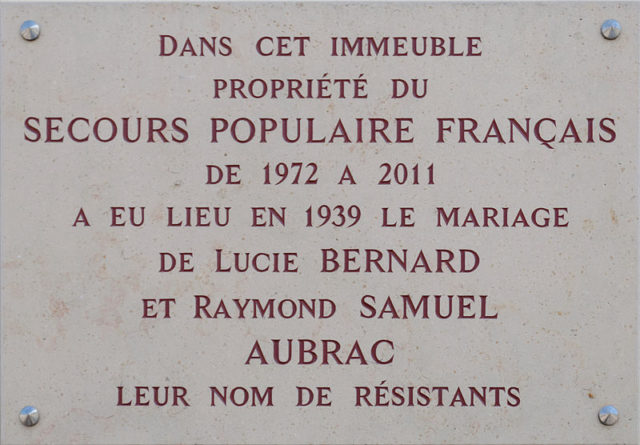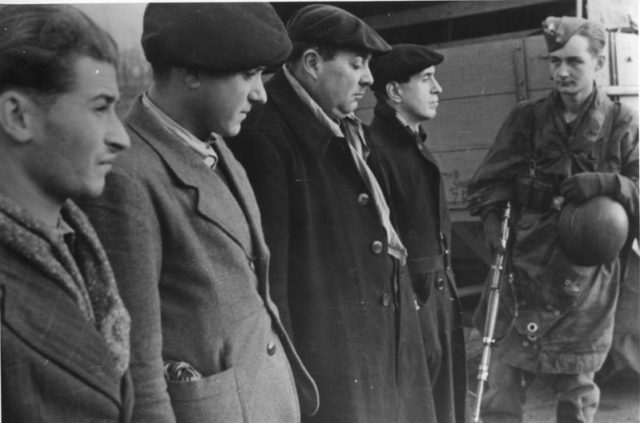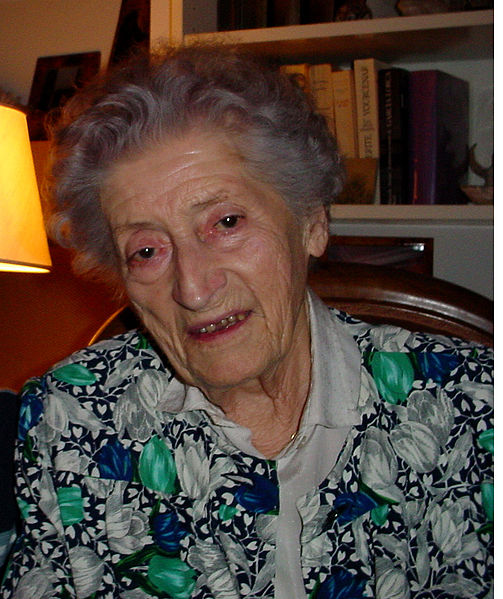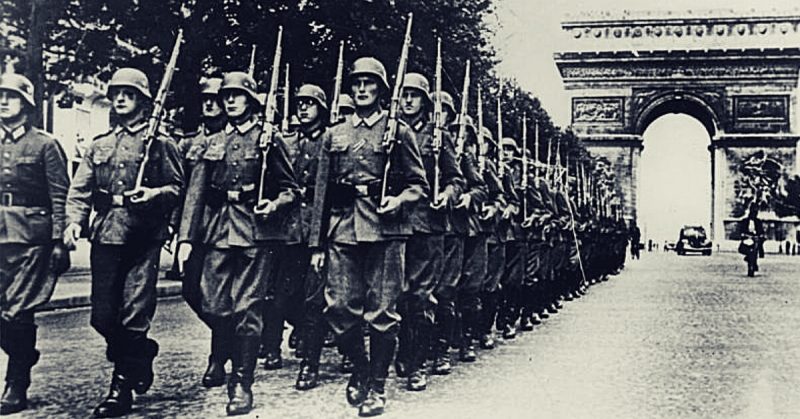Early Life
Born in 1912 in the small town of Châtenay-sur-Seine, Lucie Bernard was a bright child and did well at school. Her parents hoped she might train as a primary school teacher, but Lucie had higher ambitions. Instead of following her parents’ wishes she moved to Paris and studied at the Sorbonne which was one of the most prestigious universities in the world. On completing her studies she took up a teaching post at the Lycee in Strasbourg, close to the German border.
Lucie intended to continue her studies. She was preparing to travel to New York to take up a scholarship to study in the United Sates when war broke out. By this time she had also met her future husband Raymond Samuel, who would later change his name to Aubrac because of anti-Semitism. On hearing the news of the outbreak of war Lucie managed to make her way back to Strasbourg so that the couple could be reunited. They were married a few months later.
The War Years

In the spring of 1940, after nine months of fighting, France was no longer able to keep back the German troops and was soon under direct attack. Over a period of just a few weeks 2 million French soldiers were captured and among them was Raymond Aubrac. The French Government, led by Marshall Philippe Pétain sensed that defeat was inevitable and soon signed an armistice with Germany.
Lucie knew that her husband would soon be on his way to a POW camp in Germany. If he was going to escape it would have to be before he left French soil. She came up with an audacious plan to rescue her husband. First, Lucie made her way across France to Sarrabough where her husband was being
Lucie knew that her husband would soon be on his way to a POW camp in Germany. If he was going to escape it would have to be before he left French soil. She came up with an audacious plan to rescue her husband. First, Lucie made her way across France to Sarrabough where her husband was being held prisoner. This in itself was an enormous struggle. Getting around in wartime, unless on official business, was no easy task.
On reaching Sarrabough Lucie was allowed a brief visit and managed to smuggle in a drug which would cause the symptoms of a fever. It would be easier to escape from a hospital than from prison. The next part of her plan was to smuggle in a disguise for Raymond which would allow him to leave the hospital without suspicion. All went according to plan and they were able to make their way to the relative safety of Lyon.
The Resistance

During Lucie’s time as a student in Paris she had been shocked by the levels of inequality she saw and became strongly committed to the ideals of equality and freedom. It was not surprising then that in 1940 she became a member of the French Resistance movement, along with her husband. Although the movement was growing fast, at this time it was still a small group.
The Resistance refused to recognise the legitimacy of the Vichy Government and its collaboration with Germany. They also fought against German occupation. By necessity, it was a secret underground movement. Like many other members, Lucie appeared a typical French housewife, mother and teacher but she was secretly spending much of her time helping imprisoned Resistance members escape. Lucie also assisted in the publishing of the newspaper ‘Liberation’ and distributed leaflets and propaganda to encourage the fight against German occupation.

Although the movement was growing fast, at this time it was still a small group. The Resistance refused to recognise the legitimacy of the Vichy Government and its collaboration with Germany. They also fought against German occupation. By necessity, it was a secret underground movement. Like many other members, Lucie appeared a typical French housewife, mother, and teacher but she was secretly spending much of her time helping imprisoned Resistance members escape. Lucie also assisted in the publishing of the newspaper ‘Liberation’ and distributed leaflets and propaganda to encourage the fight against German occupation.
By 1942 things had become even more dangerous. The Germans had started deporting Jews to the concentration camps in Germany and although Raymond had changed his name, he was still at risk. He also used an alias in his resistance work, like other members of the movement, but he couldn’t hide from the Gestapo.
He was arrested in March 1943 but managed to convince the Gestapo that his activities were focused on selling goods on the black market and he was released. However, his freedom was short-lived. In June of that same year, he was arrested again, along with the resistance leader Jean Moulin. Both Moulin and Aubrac were tortured, and Moulin died of his injuries soon afterwards.

Again Lucie responded by coming up with an audacious plan to rescue her husband. She visited Montluc prison where Raymond was being held. Lucie, who was by then pregnant with their second child, met the notorious Klaus Barbie. She pretended to be a wealthy society girl and tried to persuade him to release Raymond. She tried again soon afterwards but she was told that Raymond was to be executed.
Although Barbie was unsympathetic, Lucie managed to win the sympathy of one of the German soldiers. Lucie lied. She said Raymond was her fiancé, not her husband. She persuaded them to let Raymond out of prison briefly so that they could be married. According to an obscure French law, a condemned man has the right to be married before his execution to ensure the legitimacy of a child he would leave behind.
The supposed wedding took place at the Gestapo headquarters on 21st October, and Raymond was to be returned to prison immediately afterwards. However, the van transporting Raymond and another 16 prisoners was ambushed by Resistance fighters in accordance with Lucie’s plan. All the prisoners escaped. Both Lucie and Raymond had to go into hiding. They moved from one safe house to another and eventually managed to escape to England where the family lived until the end of the war.

Recognition
After the war, the Aubracs returned to France. Lucie’s experience gained during her resistance work was recognised and she served on the advisory committee of the new French Provisional Government. Afterwards, she went back to working as a history teacher and used her personal experience to teach young people about the horrors of war. She continued to campaign for freedom and supported other causes to end discrimination. She was involved in the fight for Algerian Independence.
Later it was suggested that Raymond had been an informer and had given the Gestapo information which led to the arrest of his comrade Moulin in 1943. In response to these accusations, Lucie wrote her own memoirs giving her account of her time with the Resistance movement.
She wanted to set the record straight by telling her own story and the accusations were soon shown to be false. In 1996 Lucie Aubrac was awarded the Legion of Honor – France’s highest medal in recognition of her work. Lucie was motivated by her love of liberty and her loyalty to her husband.
